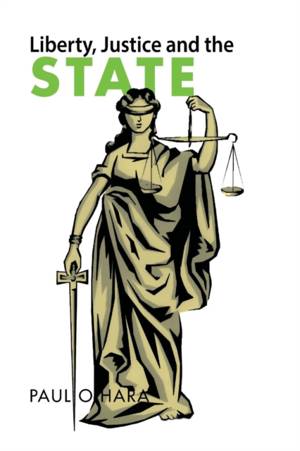
En raison d'une grêve chez bpost, votre commande pourrait être retardée. Vous avez besoin d’un livre rapidement ? Nos magasins vous accueillent à bras ouverts !
- Retrait gratuit dans votre magasin Club
- 7.000.000 titres dans notre catalogue
- Payer en toute sécurité
- Toujours un magasin près de chez vous
En raison de la grêve chez bpost, votre commande pourrait être retardée. Vous avez besoin d’un livre rapidement ? Nos magasins vous accueillent à bras ouverts !
- Retrait gratuit dans votre magasin Club
- 7.000.0000 titres dans notre catalogue
- Payer en toute sécurité
- Toujours un magasin près de chez vous
Description
Politics could be described as a kind of bartering that enables us to overcome the discontinuities in our lives by resolving conflicts in a peaceful, rather than unruly, manner and seeking a sphere in which there is some common or general accord. It is thus the art of compromise, conciliation, and negotiation rather than brute or naked force where it concerns meaningful and effective decision-making. It is also an attempt at establishing some legitimate authority in response to the different needs that arise in society and at creating a system of benefits and burdens that are binding to all. To this extent, it is about the means and not the end-or at least the sufficiency of any means as opposed to the morality of any end. To achieve what is good is thus to achieve what is useful or to at least achieve the best strategy or plan that suits the circumstance at hand. In this case, we do not say that if the end is right or wrong, then the means are value-free. Instead, we say that since the means are value-laden, then the end is value-free. Given that wielding a blunt instrument to achieve a result is neither ethical nor unethical, the best we can hope for is a more ethical approach to the fashioning of any singular or conjugate set of means. So it is with our diplomats in their global dealings and our policy makers in the world of home affairs. There is another view, however, that suggests the difference between the political and the nonpolitical hinges on the distinction between a public and a private life with the assumption that what is true for one must also be true for the other. That is that politics is an ethical activity that replaces right behavior with just behavior and that it is the pursuit of human betterment through ostensibly public means just as ethics is the pursuit of human betterment through ostensibly private means. In answer to the question where this line should be drawn, the most common response is between civil society and that entity we call the state. State institutions-such as the government, the judiciary, and the armed forces-could be regarded as public because they touch all aspects of communal life. On the other hand, institutions such as family, business conglomerates, trade unions, and divers clubs could be regarded as private because they support only limited aims and are voluntary to join as well as voluntary to quit (although, of course, not voluntary for joining in the case of the family). This may also generate a particular perception of public life as being good in one sense but bad in another. Participation in the activities of the state may be deemed worthwhile if this is seen to involve interaction among individuals who are both free and equal in their regard for one another. On the other hand, state participation may be seen in a negative light if this limits the range of our choices, especially if it interferes with family commitments and everyday leisure pursuits. But if politics is concerned principally with questions about the state, a related question concerns its origin-whether it has evolved naturally or whether it is a purely human artifice borne of certain indispensable needs. This controversy has a long history, dating back to the Greeks, and Aristotle is typical in the kind of approach that supports the former. Political associations are regarded as natural progressions, starting with those that are simple and working toward those that are more complex. The pairing of a male and a female is essential for the sake of procreation, and that introduces the basic unit of a family. The pairing of a master and a slave is essential for the sake of rulership, and that introduces the primacy of mental agility over physical strength. What we mean by the head of any household is then extended to the head of any village. Although in this case, the lord or master acquires a certain status that demands the strict loyalty of his subjects.
Spécifications
Parties prenantes
- Auteur(s) :
- Editeur:
Contenu
- Nombre de pages :
- 294
- Langue:
- Anglais
Caractéristiques
- EAN:
- 9781796003918
- Date de parution :
- 12-07-19
- Format:
- Livre broché
- Format numérique:
- Trade paperback (VS)
- Dimensions :
- 152 mm x 229 mm
- Poids :
- 435 g

Les avis
Nous publions uniquement les avis qui respectent les conditions requises. Consultez nos conditions pour les avis.






